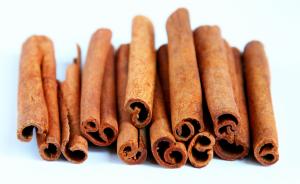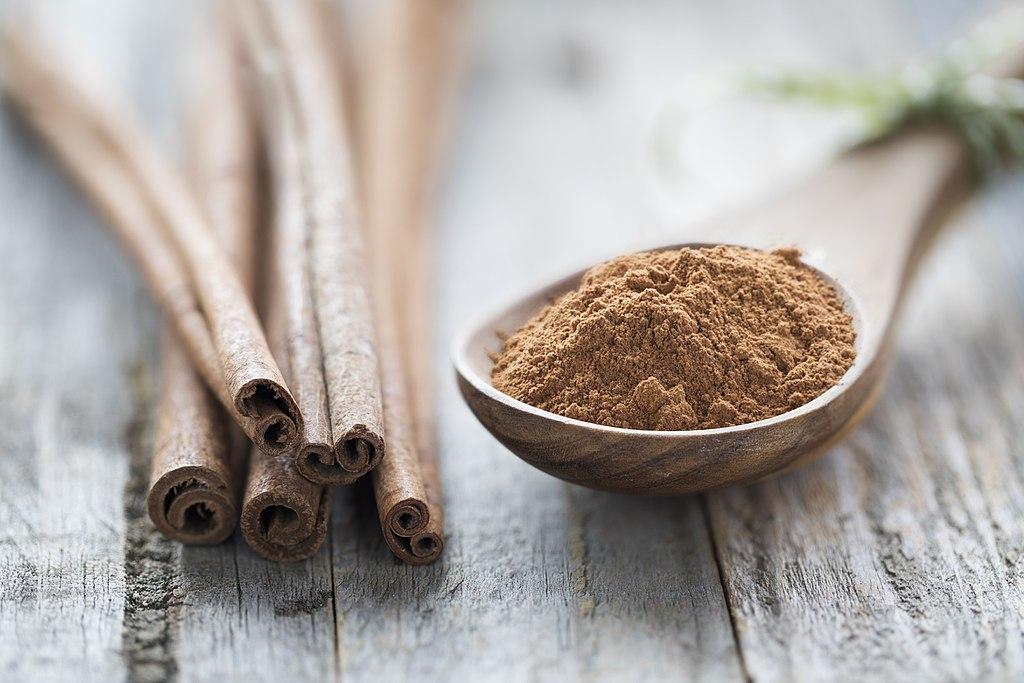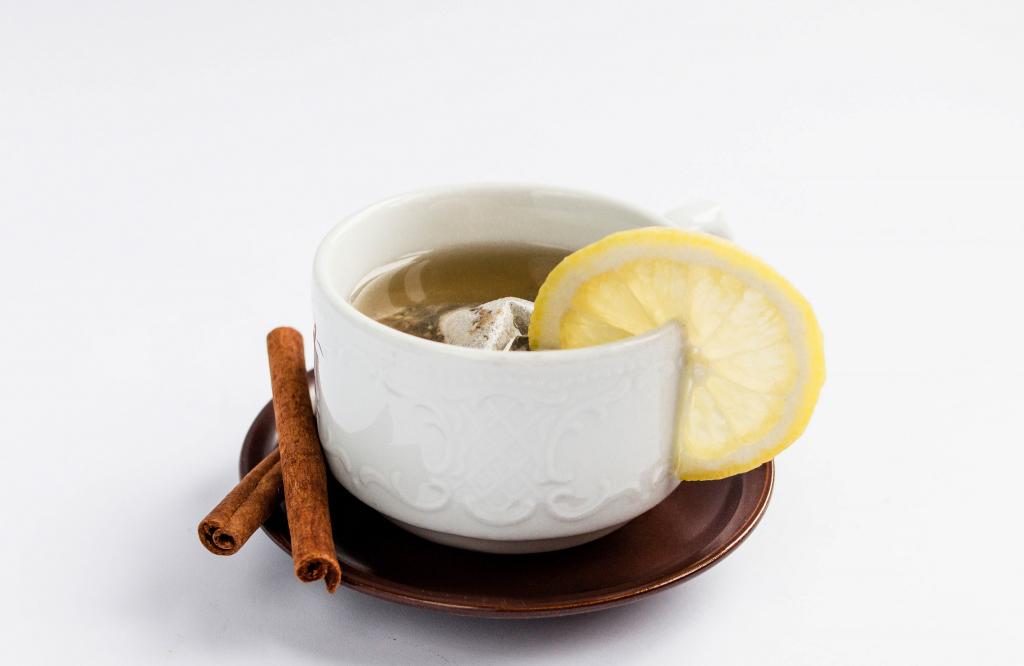Time-tested spice cinnamon may help maintain healthy blood sugar levels.

Cinnamon is a spice made from cinnamon tree bark. Cinnamon has multiple health benefits, and has been suggested to help with blood sugar by:
- Supporting insulin. Cinnamon appears to increase the activity and mimic the effects of insulin, resulting in increased glucose uptake by cells.
- Reducing glucose absorption. Cinnamon may reduce post-meal blood sugar levels by suppressing the activity of enzymes needed to break down carbohydrates.
Overview
Cinnamon is a popular spice made from the inner bark of cinammon (Cinnamomum) trees. Known for its brown color and sweet yet hot taste, cinnamon originated in South Asia and has been used for thousands of years by many different cultures to preserve food, add flavor, fragrance, and treat a wide range of health issues.
Indeed, traditional herbal remedies have used cinnamon for lung, kidney, urinary, gastrointestinal, metabolic, and many other disorders. Today, cinnamon continues to be popular as a dietary supplement, particularly for lowering blood sugar levels and other hallmarks of diabetes, such as high blood cholesterol and insulin resistance.
Cinammon’s health benefits have been examined in dozens of animal and human studies, uncovering many beneficial properties: 1
- Anti-inflammatory
- Antioxidant
- Antimicrobial
- Hypoglycemic & antidiabetic
- Neuroprotective
In terms of blood sugar, the evidence has been largely positive, with most studies noting reductions in fasting and post-meal blood glucose levels.

How Cinnamon Might Help With Blood Sugar
Reducing glucose absorption
Several studies have demonstrated that cinnamon suppresses the activity of enzymes needed to break down dietary carbohydrates into glucose, such as α-glucosidase and pancreatic α-amylase. This effect may result in reduced postprandial (post-meal) blood sugar. 2
Supporting insulin
Cinnamon seems to increase the activity of insulin and potentially mimic its effects by influencing insulin receptor and glucose transporter proteins. This effect may result in increased uptake of glucose by cells, particularly muscle and fat cells. 3 4
Read more: Guide to Blood Sugar Supplements
Cinnamon Uses & Benefits for Blood Sugar
Cinnamon is one of the most popular supplements for lowering blood sugar, particularly for people with type 2 diabetes. Most clinical studies of cinnamon’s effects on blood sugar report positive findings, with reductions in fasting & post-meal blood sugar levels.
However, there have also been some negative findings, which have led to disagreement among clinicians on whether cinnamon should be recommended for lowering blood sugar.
This is demonstrated by the fact that systematic reviews, which compiled and reviewed the results of all available studies of cinnamon and blood sugar, have reported contradictory conclusions. For example, the latest review of ten studies concluded that “consumption of cinnamon is associated with a statistically significant decrease in levels of fasting plasma glucose.” 5 However, an earlier review concluded that “The effect of cinnamon on fasting blood glucose level was inconclusive.” 6
These study reviews suggest that cinnamon is likely to reduce elevated fasting and post-meal blood sugar levels, but that its efficacy is not 100% guaranteed.

Research
Human Research
Human studies of cinnamon’s effects on blood sugar are mostly positive, demonstrating reduction of both fasting and postprandial (post-meal) blood sugar levels.
Cinnamon (1-6 g) appears to reduce fasting blood sugar by 18-29% in diabetics
This randomized, placebo-controlled study tested whether cinnamon improves blood sugar and cholesterol levels in people with type 2 diabetes. Sixty participants were divided into 6 groups, three receiving placebo, and the other three 1, 3, or 6 g cinnamon daily for 40 days. All cinnamon groups experienced reductions in fasting blood glucose levels (18-29%), in addition to improvements of blood cholesterol.
- The researchers concluded that “…intake of 1, 3, or 6 g of cinnamon per day reduces serum glucose, triglyceride, LDL cholesterol, and total cholesterol in people with type 2 diabetes…” 7
Cinnamon (1 g) appears to lower blood glucose levels in type 2 diabetics
This randomized, controlled study examined the effects of cinnamon on hemoglobin A1C (HbA1C), a marker of blood sugar levels. A total of 109 people with type 2 diabetes followed usual therapy, or one supplemented with cinnamon (1 g) daily for 90 days. The cinnamon group experienced more than twice the reduction in HbA1C compared to the standard care group.
- The researchers concluded that “Taking cinnamon could be useful for lowering serum HbA1C in type 2 diabetics…” 8
Cinnamon (2 g) may reduce blood glucose in type 2 diabetics
This randomized, double-blind, placebo-controlled study evaluated the effect of cinnamon on blood glucose in type 2 diabetics. A total of 58 people were given placebo or cinnamon (2 g) daily for 12 weeks. Compared to placebo, the cinnamon group experienced a significant reduction in HbA1c levels, indicating a reduction in blood sugar levels.
- The researchers concluded that “Cinnamon supplementation could be considered as an additional dietary supplement option to regulate blood glucose…” 9
Cinnamon (3 g) appears to reduce fasting blood sugar levels in type 2 diabetics
This randomized, double-blind, placebo-controlled study tested the effects of cinnamon on blood sugar control in type 2 diabetes. A total of 79 people were given placebo or cinnamon extract (3 g) daily for 4 months. Compared to the placebo group, the cinnamon group experienced a significant reduction (10.3%) in fasting blood sugar levels, with stronger effects in people with higher initial levels.
- The researchers concluded that “The cinnamon extract seems to have a moderate effect in reducing fasting plasma glucose concentrations in diabetic patients…” 10
Cinnamon (6 g) appears to reduce post-meal blood glucose levels
This randomized, double-blind, placebo-controlled study looked at the effects of cinnamon on postprandial (post-meal) blood glucose levels. Fourteen healthy adults ate a rice pudding meal with or without cinnamon (6 g). The cinnamon group experienced a reduction in postprandial blood sugar levels.
- The researchers concluded that “Inclusion of cinnamon in the diet lowers the postprandial glucose response.” 11
Cinnamon (1 g) does not appear to improve blood glucose in type 2 diabetics
This randomized, double-blind, placebo-controlled study examined the effects of cinnamon on people with type 2 diabetes. A total of 57 type 2 diabetics took placebo or cinnamon capsules (1 g) daily for 3 months. The study did not find any significant differences between the two groups on any measure (blood sugar, insulin, and blood cholesterol).
- The researchers concluded that “…cinnamon taken at a dose of 1 g daily for 3 months produced no significant change in fasting glucose, lipid, A1C, or insulin levels.” 12
Dosage for Blood Sugar
- Most successful studies use 1-6 g dosages of cinnamon to lower blood sugar
- Standalone cinnamon supplements typically provide 1-1.5 g dosages
- Multi-ingredient blood sugar support formulas typically contain much smaller doses of cinnamon (50-250 mg)
Available Forms
- Cinnamon. Basic cinnamon bark powder that can be sold alone or inside capsules.
- Cinnamon extract. A more concentrated version of basic cinnamon.
- Cinnulin PF®. This is a patented cinnamon extract which has been used in some successful studies of blood sugar.
Supplements in Review Recommendation
- Cinnamon, 1-6 g for blood sugar.
We recommend trying cinnamon for blood sugar. Although not all studies report positive results, there is a good deal of clinical evidence supporting cinnamon’s ability to reduce blood sugar levels.
Clinical studies use dosages of 1-6 g. We recommend using 1-6 g doses of either standard cinnamon (added to food or taken as a supplement) or cinnamon extract.
Leave a Reply